June 26, 2025 | 04:35 GMT +7
June 26, 2025 | 04:35 GMT +7
Hotline: 0913.378.918
June 26, 2025 | 04:35 GMT +7
Hotline: 0913.378.918
According to global trends, the production and market for biological plant protection agents in Vietnam have seen notable developments in recent years. The Department of Plant Protection reported that by the end of 2023, Vietnam houses a total of 85 production facilities that manufacture biological plant protection agents, including microbial, herbal, and biochemical pesticides.
Vietnam has registered, produced and utilized various common production technologies for biological plant protection agents, including the production of nano biological pesticides, herbal extract-based biological pesticides, and those containing microorganisms, as well as products derived from viruses and nematodes.
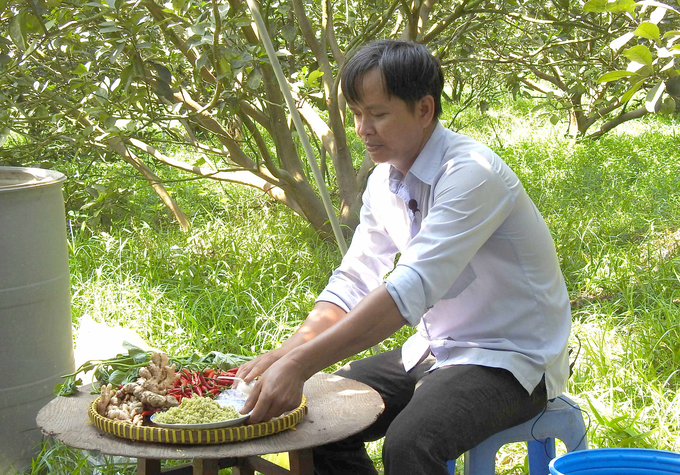
Farmers are producing biological plant protection agents using locally available herbs. Photo: Thanh Son.
Nguyen Van Son, Chairman of the Vietnam Pesticide Association (VIPA), remarked that the government has issued several policies to promote the production and use of biological plant protection agents. In addition, relevant agencies have reduced the registration procedures and criteria for biological plant protection agents compared to those of chemical pesticides. Notable improvements include exemptions from certification for the production of microbial pesticides, reduced registration fees, fewer testing requirements, and fewer documentation demands during the registration process.
However, the procedures for biological plant protection agents are relatively complicated and limiting. Accordingly, there is a lack of detailed regulations regarding technical requirements for specialized biological plant protection agents such as pheromones, post-harvest preservatives, bait traps, and adjuvants, which follow the same registration procedures as chemical pesticides.
On the other hand, there is a lack of testing methods to determine a specific level of concentration for select microorganisms. This limitation poses a significant challenge to the import, production, and standardization of biological plant protection agents.
Chairman Nguyen Van Son suggested that the Ministry of Agriculture and Rural Development review and reduce the procedures and costs associated with the registration of plant protection product agents. These adjustments will enable quicker market access and save costs and time for businesses.
Dr. Tony Alfonso, Chairman of the Biological Plant Protection Agent Task Force at CropLife Asia, highlighted the importance of a detailed guideline for the testing of biological plant protection agents and a flexible legal framework due to the natural origins and complex nature of these products.
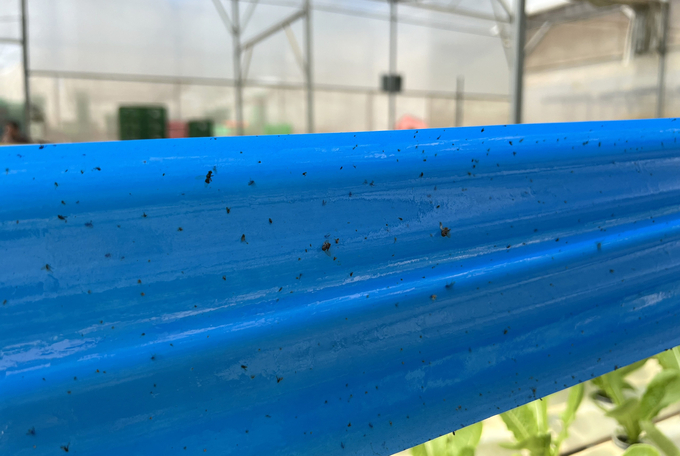
Insect traps in a high-tech vegetable farm in Duc Trong, Lam Dong Province. Photo: Thanh Son.
It is also important to evaluate biological plant protection agents on a case-by-case basis. For instance, a focus on data concerning human health exposure and environmental impact assessments is crucial when the product or its metabolites have potential toxicity effects on humans or the environment.
The establishment of a rapid and efficient legal framework at a reasonable cost will promote the development and registration of biological plant protection agents. This initiative can include a distinct process for receiving and reviewing registration applications for biological plant protection agents, referencing foreign registrations of similar products, and supplementing with specific studies conducted in Vietnam.
A flexible approach to the registration of biological plant protection agents based on scientific assessment will facilitate the timely adoption of new biological pesticides while maintaining consistency with existing legal frameworks.
Researchers are constantly developing new technologies for biological plant protection agents, such as genetically modified bacteria, with the potential to achieve biological efficacy comparable to chemical products but with superior safety profiles. As a result, it is crucial to establish quality control mechanisms to prevent the proliferation of "illegal" products that can undermine the quality of legitimate, registered products.
Furthermore, stakeholders should prioritize formulating highly predictive legal guidelines to accommodate future technological advancements, such as new technologies in biological plant protection agents such as genetically modified bacteria, which may achieve a level of efficacy similar to chemical pesticides with greater safety benefits.
Dr. Tony Alfonso emphasized that a predictive and appropriate legal framework for biological plant protection agents is crucial to the consistent safety and efficacy of these products without negatively affecting their introduction and commercialization in the market.
In addition to establishing a suitable legal framework, the production of biological plant protection agents also requires support policies.
According to Chairman Nguyen Van Son, the government must supplement several support policies to incentivize investment into the technology for producing biological plant protection agents. These support policies may cover assistance with technology transfer procedures, access to loans, land leasing for production facilities, and tax and fee incentives for product development. Additionally, Chairman Son recommended a reduction in interest rates for loans to purchase research and production equipment for biological plant protection agents and fund technology imports related to their production.
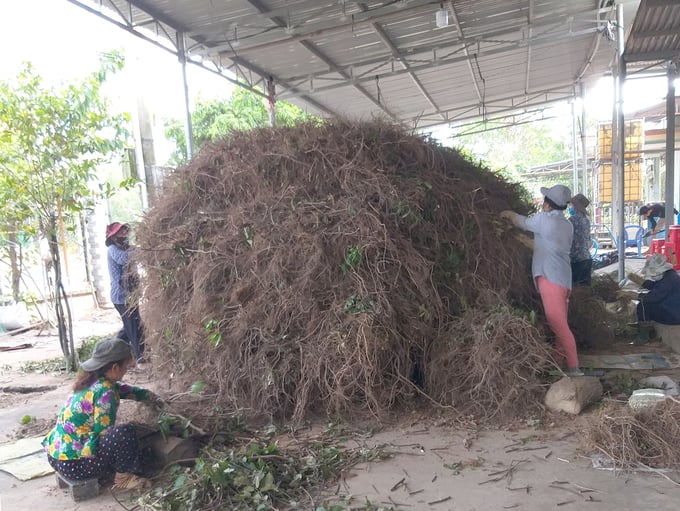
Farmers harvesting Derris elliptica (ruoc ca) to create biological pesticides for crop protection. Photo: Thanh Son.
The government should prioritize businesses that invest in developing and utilizing domestic resources, such as local raw materials, indigenous microorganisms, artificial cultivation of microbial biomass for production, and plants containing biological plant protection active ingredients (including Derris elliptica, jicama seeds, Indian lilac, native lilac, Vernicia montana, and other agricultural by-products such as castor bean pomace and tea seeds) for producing biological plant protection agents. Several biological plant protection agents, such as Trichoderma and agricultural by-products, can act as raw materials for producing multifunctional organic microbial fertilizers, which require further support for development.
Chairman Son recommended that the government enhance support for research and deployment of biological plant protection agents, with a focus on new-generation products. Furthermore, the government should develop an integrated program across all administrative levels to support research and production activities for biological plant protection agents, prioritizing new-generation biological products and establishing and replicating application models to demonstrate efficacy and build farmers' trust.
The government should also support companies in adopting modern technology for large-scale production of biological plant protection agents, thereby reducing production costs to facilitate farmers' reception. Moreover, the initiative will serve as a foundation for further development of other promising technologies.
Additionally, the government needs to establish a plan prioritizing the development of an experienced human resource base capable of conducting research, production, and technology transfer in the field of biological plant protection agents.
"We need to perform three immediate actions to develop the production of biological plant protection agents. Firstly, we must create a separate legal framework to simplify the registration process for biological plant protection businesses. Secondly, we must invest in targeted research on feasible biological plant protection agents that have high applicability in production, such as antagonistic fungi, antagonistic microorganisms, biochemical products, plant antibiotics, and herbal extracts. Thirdly, we must establish supportive mechanisms for capital, taxation, land, and workforce training."
Nguyen Van Son, Chairman of VIPA.
Translated by Nguyen Hai Long
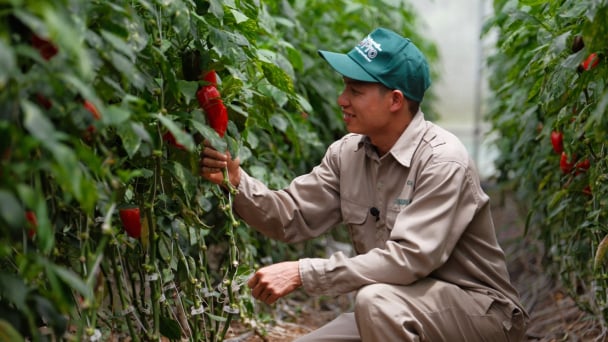
(VAN) Reducing emissions from agricultural and food production is a potential solution for Vietnam to implement its Nationally Determined Contribution (NDC) 3.0.
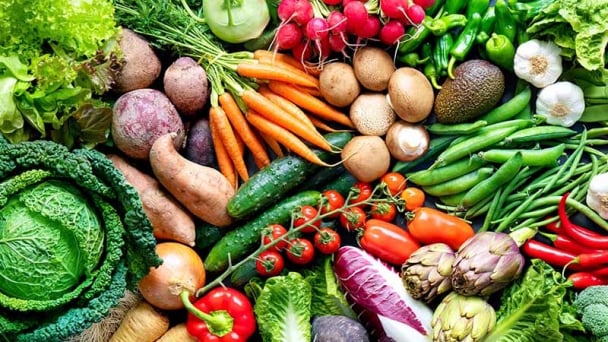
(VAN) The national action plan for food system transformation needs to align with the decentralization requirements under Vietnam's upcoming two-tier government model.
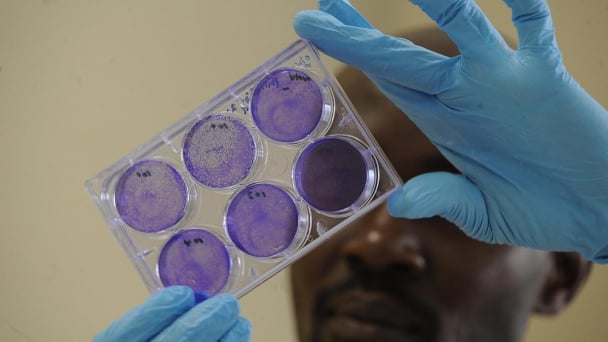
(VAN) The Food and Agriculture Organization’s Strategic Framework and its Science and Innovation Strategy make a simple case: solving systemic problems requires systemic solutions.

(VAN) Vietnam's national goal programs have effectively mobilized the combined strength of agriculture, farmers, and rural areas, thereby enhancing the material and spiritual well-being of the Vietnamese populace.

(VAN) The waste of resources from agricultural by-products and the situation of counterfeit and poor quality goods in production causing losses of thousands of billions were pointed out by the National Assembly deputy.

(VAN) After 5 years of implementation, the CAI initiative has helped coffee growers change their farming practices, moving toward responsible agriculture that meets global export standards.

(VAN) The primary prerequisite for the comprehensive and robust integration of Vietnam's livestock sector into the global value chain is the establishment of a disease control system.